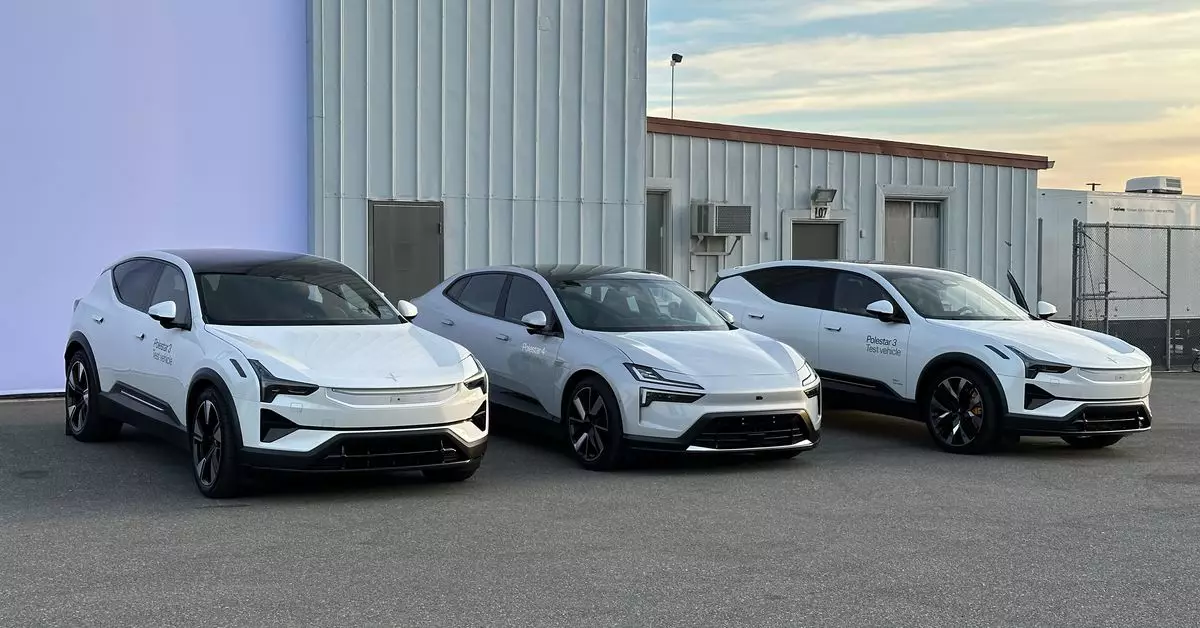In recent developments, the Biden administration has enacted a new regulation notably impacting the automotive industry by barring the sale or import of connected vehicle software from nations perceived as adversarial, with a specific emphasis on China and Russia. This legislation not only represents a significant stance on national security but also highlights a growing unease about the implications of foreign technology in U.S. markets. The ramifications of this new rule extend far beyond major car manufacturers, potentially reshaping the landscape for various stakeholders within the auto industry.
The scope of the regulations is extensive, targeting all components that facilitate connectivity in vehicles, including technologies such as Bluetooth, Wi-Fi, satellite communications, and numerous sensors embedded within traditional and electric automobiles. The strategy aims to mitigate risks associated with foreign access to sensitive information that modern vehicles can unwittingly collect. As vehicles are increasingly integrated with advanced technologies, from GPS navigation to onboard cameras, the potential for exploitation by entities with malign intentions becomes a pressing concern. U.S. Secretary of Commerce Gina Raimondo sharply articulated this viewpoint, underscoring the inherent risks posed by foreign adversaries gaining insights into American citizens’ lives and the infrastructure that supports them.
Furthermore, the new regulation imposes strict limitations on Chinese and Russian manufacturers, effectively barring them from testing autonomous vehicles on U.S. soil. This move can be seen as a significant step to safeguard technological integrity, reinforcing the administration’s resolve to secure American supply chains.
The implementation of this rule will occur in phases, with restrictions on software taking effect for the 2027 model year, while hardware restraints are anticipated for the 2030 model year. This gradual approach is designed to provide manufacturers adequate time to adjust their supply chains, though critics argue that such a timeline remains optimistic. Manufacturers like the Alliance for Automotive Innovation have highlighted the vast and intricate nature of global automotive supply chains, warning that sudden changes could lead to disruptions detrimental to production timelines and operational efficiency.
A notable development from the finalized rule is the exemption for vehicles over 10,000 pounds, a decision critical for certain manufacturers, such as BYD, that have operations in the U.S. Nevertheless, smaller manufacturers and upstart companies may find themselves disproportionately affected by these changes, illustrating the uneven landscape of the automotive market and its ability to absorb regulatory transformations.
The fallout from this regulation is felt across the automotive sector, prompting diverse reactions from various stakeholders. Major auto manufacturers, like Ford and GM, find themselves navigating new terrain that could fortify their market position domestically while simultaneously complicating their international relationships. Conversely, companies such as Polestar, which depends on a global supply chain and aims to penetrate the U.S. market, have expressed fears that the new regulations could strangle their ambitions. Polestar’s reliance on the interconnected aspects of technology leaves it exposed to potential repercussions from these rules.
Additionally, Waymo, a subsidiary of Alphabet positioned to leverage integrated technology to innovate transportation solutions, may see its expansion plans severely hampered. The implications of the Biden administration’s stance are particularly poignant, as they may inadvertently stifle technological advancements from firms that, although operating under foreign governance, contribute to the burgeoning field of autonomous transport.
As the implications of this regulation unfold, the automobile industry stands at a critical crossroads. The Biden administration’s measures are indicative of a broader strategy aimed at curbing foreign influence while safeguarding national security. However, the intricate nature of global supply chains and the interconnectedness of modern technology pose a rather complicated challenge for manufacturers and regulators alike.
While the intent behind these regulations is to fortify national security and protect sensitive data, the potential consequences for the automotive landscape in the U.S. could be profound. As companies adapt to comply with these changes, the balance between fostering innovation and securing national interest will remain a contentious point of discussion in the years to come. By navigating these complexities wisely, stakeholders can hopefully mitigate disruption while remaining competitive in both domestic and global markets.


Leave a Reply